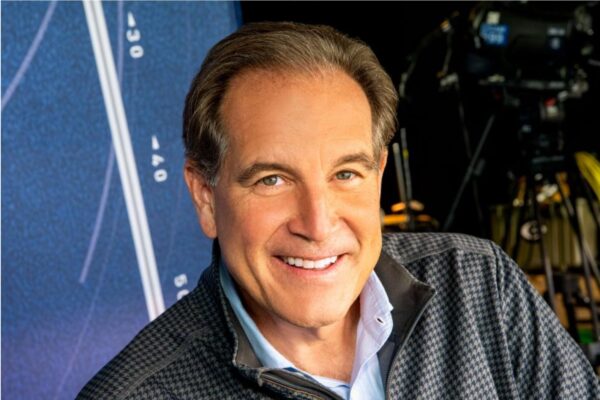By Robby General | @rgeneraljr
Sports Capital Journalism Program
INDIANAPOLIS – Mike Krzyzewski very rarely does anything unrelated to getting his Duke University basketball team ready on game days.
But hours before the opening of the 2018-19 NCAA basketball season at the Champions Classic at Bankers Life Fieldhouse – where No. 4 Duke would dominate No. 2 Kentucky, 118-84 – he made an exception, attending the College Basketball Symposium.
During the panel discussion, hosted by the Sports Capital Journalism Program at IUPUI, Krzyzewski offered insight on the state of college basketball and clarified some comments he made in October regarding the ongoing NCAA corruption scandal.
Krzyzewski apologized for “shortchanging the answer,” elaborating on what he meant by calling the FBI investigation and trial, which has put several high-profile NCAA basketball programs under investigation over the past year, a “blip” on the college basketball radar.
“I went to West Point, and I was an army officer for five years,” he said. “I call a blip on the radar screen of college basketball. It doesn’t mean that the blip is not a serious thing and we should all look at it real close.
“For me, the college basketball scene has been pretty clean,” he said. “I haven’t encountered those things … We haven’t lost kids because I feel someone cheated for him.”
During the conversation, Krzyzewski, now in his 39th season at Duke, discussed how college basketball is in a unique situation as a result of how rapidly the game seems to be changing with the amount of money made and prominence it holds in the sports world.
While he admits that he doesn’t have the answers to solve some of the issues the sport is facing – including managing outlying stakeholders, such as apparel companies, not sanctioned by the NCAA – Krzyzewski said he hopes that organizations like the NCAA, NBA, NBA players union and USA Basketball can work together to provide what’s best for the next generation of basketball talent.
Krzyzewski also discussed the possibility of players profiting from the utilization of their likeness to benefit all parties involved.
“People should be allowed to earn at any time in their life when someone feels their talent is worthy of earning,” Krzyzewski said. “… My view has always been what’s good for the player and his family because they only get to do this once.”
Whether what’s good for the players includes setting up the G League as an entry into the NBA, redefining amateurism or eventually paying players, Krzyzewski says an open dialogue between the organizations needs to develop.
According to Krzyzewski, college basketball has been in a reactionary stage and should instead be working proactively to figure out the best course of action moving forward.
“We should be abreast of what those plans are and what the players union is proposing for the future,” he said. “If not to influence the decisions that those entities have, then maybe to influence the courses of action we would take, or programs that we would put in.”
Krzyzewski did credit the steps the NCAA has taken in the past few years, including providing full cost of attendance, travel cost and insurance, among other benefits for student-athletes.


